Best Quality Mango Powder
When looking for the best quality mango powder (also known as amchur or amchoor), there are a few factors to consider for freshness, flavor, and purity. Here’s a guide to selecting top-quality mango powder:
1. Purity & Ingredients
– Single Ingredient: The best mango powders use only 100% dried, green mango with no additives, preservatives, or fillers. Look for ingredient lists that just say “dried mango” or “mango.”
– Organic Options: Organic mango powder ensures no pesticides or harmful chemicals were used in the cultivation process, which can enhance flavor and nutritional content.
2. Origin & Processing
– Source of Mangoes: High-quality mango powders often come from regions renowned for flavorful mangoes, such as India or Southeast Asia.
– Processing Method: Mangoes that are sun-dried or naturally dehydrated at low temperatures retain more of their nutrients and natural flavors. Low-heat drying methods preserve the fruity, tangy taste and color better than high-heat methods.
3. Appearance & Texture
– Color: Good-quality mango powder is light brownish-yellow to golden, with no artificial coloring. A consistent color indicates that it’s made from raw green mangoes.
– Fine Texture: A fine, uniform powder means the mangoes were properly dried and ground. Grainy or inconsistent textures can indicate uneven drying or low-quality ingredients.
4. Flavor Profile
– Tangy and Fruity: Mango powder is known for its tart, fruity flavor with a slight sweetness. If possible, try to sample or read reviews to ensure the powder has the characteristic amchur tang without being overly sour or bitter.
5. Packaging and Shelf Life
– Airtight, Dark Containers: The powder should be stored in an airtight, opaque container to protect it from light and moisture, which can affect freshness and flavor.
– Shelf Life: Good mango powder can last 1-2 years when stored properly. Check for a reasonable expiration date, especially if buying in bulk.
High-quality mango powder adds tang to dishes, enhances marinades, pickles, chutneys, and is a great addition to salads and spice rubs. Its rich flavor can even work in smoothies and beverages for a unique twist.
Best Quality Mango Powder: A Comprehensive Guide to Benefits, Uses, and Selection
Mango powder, commonly known as “amchur” or “amchoor,” is a tangy, flavorful powder made from sun-dried, unripe mangoes. This versatile ingredient is often used in Indian, Southeast Asian, and Middle Eastern cuisines to add a hint of sourness and the essence of fresh mangoes to recipes without the need for fresh fruit. In this article, we’ll explore what makes the best quality mango powder, its incredible health benefits, uses in cooking and beyond, and how to select, store, and use it effectively.
1. Introduction
The unique, tangy flavor of mango powder can elevate a variety of dishes and recipes. It’s widely known for its digestive benefits and its ability to add a burst of flavor without additional moisture. From its high antioxidant content to digestive benefits, mango powder offers a multitude of health advantages, making it an essential in any spice cabinet.
2. What is Mango Powder?
Mango powder, or amchur, is a fine powder derived from sun-dried green mangoes, giving it a distinct tart flavor. Traditionally used in Indian cuisine, it imparts a citrusy zest that is similar to lime or tamarind, making it a popular choice for adding a bright note to curries, stews, and marinades. With a naturally sharp and refreshing taste, mango powder is an excellent addition for those looking to enhance their dishes in a unique way.
3. How Mango Powder is Made
The production of mango powder begins with unripe, green mangoes, which are carefully sliced and sun-dried until all moisture is removed. Once fully dried, the mango slices are ground into a fine, light brown or beige powder. This process retains the fruit’s natural sourness and preserves its nutrients, making mango powder a concentrated form of mango with an intense flavor profile.
4. Nutritional Composition of Mango Powder
Mango powder is packed with essential nutrients and compounds:
– Vitamin C: Known for its immune-boosting properties.
– Vitamin A: Helps support vision health.
– Dietary Fiber: Assists in digestive health.
– Antioxidants: Neutralize free radicals, reducing cellular damage.
With a nutrient profile that mimics fresh mangoes, mango powder is a concentrated source of vitamins and minerals that enhance both the flavor and health benefits of a meal.
5. Health Benefits of Mango Powder
Rich in Antioxidants
Mango powder contains high levels of antioxidants, which play a key role in reducing oxidative stress in the body. Antioxidants help slow down aging, reduce the risk of chronic diseases, and promote overall cellular health.
Good Source of Vitamin C
The Vitamin C in mango powder is beneficial for immune health, skin repair, and collagen formation. A small amount of mango powder can provide a significant dose of this important vitamin, which is essential for maintaining skin elasticity and preventing premature aging.
Supports Digestion
Mango powder is widely used for its digestive benefits. It has been traditionally valued for its ability to help with digestion and relieve constipation, making it a natural remedy for various digestive ailments. Its fiber content aids in digestive processes and supports gut health.
Anti-inflammatory Properties
The anti-inflammatory compounds in mango powder may reduce inflammation in the body, helping to alleviate symptoms of arthritis and other inflammatory conditions. Regular consumption of mango powder may contribute to reduced joint pain and improved mobility.
6. Types of Mango Powder
Organic Mango Powder
Organic mango powder is made from mangoes that have been grown without the use of synthetic pesticides or fertilizers, offering a more natural and environmentally friendly option. Organic varieties often come with certifications and may have a slightly different flavor profile.
Conventional Mango Powder
Conventional mango powder is made from mangoes that may be grown with standard agricultural practices. While often more affordable, some may prefer organic to avoid potential pesticide residues.
7. Choosing the Best Quality Mango Powder
Finding the best quality mango powder ensures the best flavor and maximum health benefits. Here are some key factors to consider:
Color and Aroma
High-quality mango powder should be a pale beige or light brown. A vibrant, fresh aroma is a good indicator of its quality and freshness.
Texture and Purity
A good mango powder should have a fine, smooth texture without lumps. Purity is crucial; check the ingredients list to ensure it doesn’t contain fillers or artificial additives.
Packaging and Brand Reputation
The best mango powders come in airtight packaging to maintain freshness. Additionally, reputable brands with positive reviews and transparency about sourcing are typically more reliable.
8. Top Brands of Mango Powder in the Market
Many brands produce quality mango powder, offering options that vary in terms of organic certification, packaging, and price. Some of the most trusted brands include:
– Spicy World: Known for high-quality, organic mango powder.
– Rani Brand: Offers a pure, additive-free mango powder.
– Deep Foods: A trusted brand with a rich flavor profile, ideal for traditional recipes.
These brands have consistently high ratings and are widely available online and in stores.
9. Cooking with Mango Powder
Mango powder can be used in a variety of culinary applications, from traditional Indian recipes to modern fusion dishes.
Traditional Indian Dishes
Amchur is a staple in Indian kitchens, used in curries, dals, and chaats. Its sour notes balance out rich flavors in dishes like aloo tikki (spiced potato patties) and chole (chickpea curry).
Salads and Dressings
Add a pinch of mango powder to salad dressings for a tangy twist, or sprinkle it on top of fresh salads for a unique flavor contrast.
Marinades and Rubs
Mango powder is also ideal for marinades and rubs, especially for chicken, fish, or tofu. It adds a hint of sourness that helps tenderize the meat and enhances the overall taste.
10. Non-Culinary Uses of Mango Powder
Beyond cooking, mango powder has a few other applications. It’s sometimes used in traditional medicine to alleviate digestive issues and improve skin health. Its high vitamin C content can benefit skin vitality when used in face masks or skincare formulations.
11. How to Store Mango Powder Properly
To retain its flavor and potency, store mango powder in an airtight container, away from direct sunlight and heat. Proper storage can help preserve its freshness for up to six months, though it’s best used within the first three months.
12. DIY Mango Powder: How to Make it at Home
For those who enjoy DIY projects, making mango powder at home is relatively simple. All you need are green mangoes, a knife, and a bit of patience. Slice the mangoes, dry them thoroughly in the sun or a dehydrator, and then grind the slices into a fine powder.
13. Precautions and Side Effects Mango Powder
While mango powder is generally safe, consuming it in large quantities may lead to acidity or stomach discomfort. Always use it in moderation, especially if you have a sensitive stomach.
14. Comparing Mango Powder with Fresh Mango
Fresh mangoes are hydrating and packed with natural sugars, while mango powder offers a concentrated form of mango flavor with less sweetness and added sourness. Each has its place in the kitchen, depending on the recipe and desired flavor.
My recipe to Making Homemade Mango Powder A form from Experience
Growing up in a house where spices were the twinkle of every mess, I always had a seductiveness with how simple constituents could transfigure into commodity magical. Mango powder, or amchur as we call it back home, was one of those closet masses I took for granted — until I moved to a place where it was n’t readily available. That’s when I decided to make my own.
It started as a necessity, turned into an experiment, and now it’s a ritual I cherish every mango season. moment, I’m participating my form for mango powder, drawn from times of trial and error, sunburned afterlife, and the joy of seeing raw green mangoes turn into a pungent, sweet powder that elevates every dish it touches.
Let’s dive into this process together it’s simpler than you might think, but it does bear tolerance and a little love.
What You’ll Need Ingredients and Tools for Mango Powder
Before we get started, let me lay out what you’ll need. This recipe is flexible, depending on how important mango powder you want to make, but I’ll base it on a modest batch I made last summer using about five kilograms of raw green mangoes. Then’s the rundown
Raw Green Mangoes 5 kilograms( around 10- 12 medium- sized mangoes, depending on their size). Look for unripe mangoes that are firm, sour, and have n’t started turning yellow. The sourness is crucial it’s what gives mango powder its hand tang.
A Sharp Knife and Peeler You’ll need these to peel and slice the mangoes. I’ve tried doing this with a dull cutter, and trust me, it’s a frustrating mess.
A Large Cutting Board Mangoes can be slippery, and you’ll want space to work comfortably.
A Clean Cloth or Servers For drying the mango slices. I use old cotton bedsheets because they’re breathable and reusable.
Sun This is your drying agent. You’ll need a sunny spot — rather outside where the mangoes can lounge for a many days. However, I’ll partake an roaster- drying volition latterly, If you’re in a sticky area or don’t have dependable sun.
A Blender or Grinder Once the mangoes are dried, you’ll need commodity to turn them into powder. I use a spice grinder, but a regular blender works too.
A Fine Sieve To get that smooth, fine texture and remove any chunky bits.
Airtight Containers For storing your finished mango powder. Glass jars are my go- to — they keep the flavor complete for months.
That’s it! No fancy widgets or preservatives just nature and a bit of elbow grease.
Step 1 Picking the Perfect Mangoes
The first time I made mango powder, I made the rookie mistake of using slightly ripe mangoes. The result? A sticky, sweet mess that would n’t dry duly and demanded the punch I was later. So, lesson learned stick to raw, green mangoes. I generally head to the original market in early summer, when mangoes are still callow and generous. You want bones that feel hard when you press them — no give at all. The skin should be a vibrant green, perhaps with a hint of unheroic, but nothing too soft or fragrant. Last time, I got my hands on a batch from a planter’s cube near my place — small, sour, and perfect for the job.
Once you’ve got your mangoes, give them a quick wash under cold water. They don’t need a deep mite, but you want to wash off any dust or dirt from the skin. Pat them dry with a kerchief and set them away. This part always feels like the calm before the storm — everything’s quiet until the shelling begins.
Step 2 Peeling and Slicing
Now, this is where the real work thresholds. I set up my station on the kitchen counter, with a big slice board, a coliseum for scraps, and a playlist humming in the background — commodity upbeat to keep me going. shelling mangoes can be tedious, but I’ve set up a meter over the times. snare your bobby and start stripping off the green skin. It comes off in thin, entwining strips, revealing the pale, firm meat underneath. However, switch to a cutter — just be careful not to take off too much of the good stuff, If the bobby slips( and it’ll if your mangoes are redundant juicy).
Once hulled, it’s time to slice. I aim for thin, invariant pieces — about a quarter- inch thick — because they dry briskly and more unevenly. Cut around the hole, which is flat and woody in the center. I generally slice off the two “ cheeks ” first, also trim whatever meat I can from the sides. Do n’t worry if the pieces are n’t perfect; they’ll shrink and coil as they dry anyway. My first batch had uneven gobbets, and some took ever to dry while others turned brittle too soon. Thin slices are your friend then.
As you slice, pile the pieces onto a charger or spread them on a clean cloth. I learned the hard way not to lap them — crowded slices trap humidity and invite earth. Spread them out in a single subcaste, and if you’re doing a big batch like my five kilos, you’ll need multiple shells. Last summer, I covered my entire deck with bedsheets dotted with mango slices it looked like a patchwork spread of green.
Step 3 The Drying Game
There’s where tolerance comes in. Drying is the heart of making mango powder, and sun is your stylish supporter. I take my servers or cloths outside to a spot that gets full sun my deck works great, but a rooftop or sundeck is ideal if you’ve got one. The thing is to let the mango slices dry out fully, turning them into hard, tough bits with no humidity left. In my experience, this takes 3- 5 days, depending on the rainfall. Last June, we had a stretch of scorching days, and my mangoes were ready in three days flat. But if it’s cloudy or sticky, it might take a week.
Every morning, I’d check on them, flipping each slice to insure both sides got equal sun. This step is pivotal — unflipped pieces can stay damp on one side, and you’ll end up with uneven drying. By day two, they start shrinking and turning a darker, gray -green. By day four or five, they’re brittle and snap when you bend them. That’s the sign they’re done.However, break one in half; there should be no soft or juicy spots outside, If you’re not sure.
Now, if you’re stuck without sun — like during the thunderstorm season when I tried this formerly — you can use an roaster. Set it to the smallest temperature( around 150 °F or 65 °C), spread the slices on incinerating wastes, and let them dry for 6- 8 hours, flipping half. It’s briskly, but I find the sun- dried interpretation has a deeper, more authentic flavor. The roaster works in a pinch, however, and it saved my batch that stormy week.
Step 4 Grinding to Powder
Once your mango slices are bone-dry, it’s time to turn them into powder. This part always feels satisfying — like the finish line after a long race. I gather the dried pieces in a bowl, marveling at how light they’ve come. Five kilos of fresh mangoes shrink down to perhaps half a kilo of dried slices — it’s amazing how important water they lose.
I use a spice grinder, working in small batches so it does n’t heat. The dried mangoes grind down fluently, releasing a sharp, pungent aroma that fills the kitchen.However, palpitation it rather of running it continuously to avoid cementing, If you’re using a blender. My first attempt was with a cheap blender, and I ended up with a coarse blend rather of fine powder — live and learn. Now, I grind until it’s nearly dust- suchlike, stopping to shake the grinder and check the texture.
After grinding, I pour the powder through a fine sieve into a coliseum. This catches any stubborn gobbets that did n’t break down. Those bits? I toss them back into the grinder for a alternate round. By the end, you’ve got a smooth, light faceless powder that smells like concentrated mango heaven.
Step 5 Storing Your Mango Powder
The final step is storehouse, and this is where you lock in that flavor for months. I use glass jars with tight lids — plastic works too, but I’ve noticed it can absorb the smell over time. Fill the jars, leaving a little headspace, and store them in a cool, dry place down from sun. My closet shelf is perfect, and last time’s batch stayed fresh and potent for nearly eight months.
One tip marker your jars with the date. It’s easy to forget when you made it, and while mango powder does n’t spoil snappily, it does lose its zing after a time or so. I learned this when I set up an old jar at the reverse of my cupboard — still comestible, but not nearly as vibrant as the fresh stuff.
How to Use Your Mango Powder
Now that you’ve got your manual mango powder, what do you do with it? I sprinkle it into everything — curries, chutneys, gravies, indeed a quick snack of roasted chickpeas. It adds a bright, sour kick that’s hard to replicate with bomb or ginger. My fave is dusting it over a coliseum of storming dal — it cuts through the richness and makes every bite pop. trial with it; you’ll find it’s a game- changer in the kitchen.
Reflections and Tips from My Experience
Looking back, making mango powder has tutored me further than just a form it’s about decelerating down and working with what nature gives you. My first batch was a disaster — half- dried slices and a gritty powder but each time got better. Then are a many tips I’ve picked up
Timing Matters Start beforehand in the mango season when raw mangoes are abundant and cheap.
Weather Watch Check the cast before drying; a unforeseen rain can ruin your batch( I’ve lost a charger to an unanticipated shower).
Small Batches If you’re new to this, start with 1- 2 kilos to get the hang of it.
Taste Test Before grinding, nibble a dried piece to check the sourness — it’ll tell you how pungent your powder will be.
Final studies
Making mango powder is a labor of love, but it’s worth every nanosecond. There’s commodity deeply satisfying about turning a pile of green mangoes into a jar of golden powder that carries the taste of summer all time round. It’s not just a spice it’s a memory of sunny days, sticky hands, and the quiet pride of doing it yourself. Give it a pass, and let me know how it goes. perhaps you’ll find your own tricks to add to the story.
15. Conclusion
Mango powder is a highly versatile, flavorful, and healthful spice that deserves a spot in every kitchen. Whether you’re using it in traditional recipes or as a creative twist in modern dishes, this tangy powder brings a burst of flavor and numerous health benefits. Choosing high-quality mango powder ensures you’ll get the best flavor and nutritional profile, so make sure to look for reputable brands and store it properly for optimal freshness.
FAQs
1. What does mango powder taste like?
– Mango powder has a tangy, slightly sour taste similar to lime or tamarind, which adds a unique flavor to various dishes.
2. Is mango powder healthy?
– Yes, it’s packed with antioxidants, Vitamin C, and digestive benefits, making it a nutritious addition to meals.
3. Can mango powder be used in drinks?
– While it’s primarily used in cooking, mango powder can be added to certain drinks like lemonades for a tangy twist.
- Where can I buy high-quality mango powder?
- It’s available at many grocery stores, specialty spice stores, and online platforms like Amazon.
- How much mango powder should I use in recipes?
- Use it sparingly; a little goes a long way! Generally, ¼ to ½ teaspoon is enough to add flavor to most dishes.

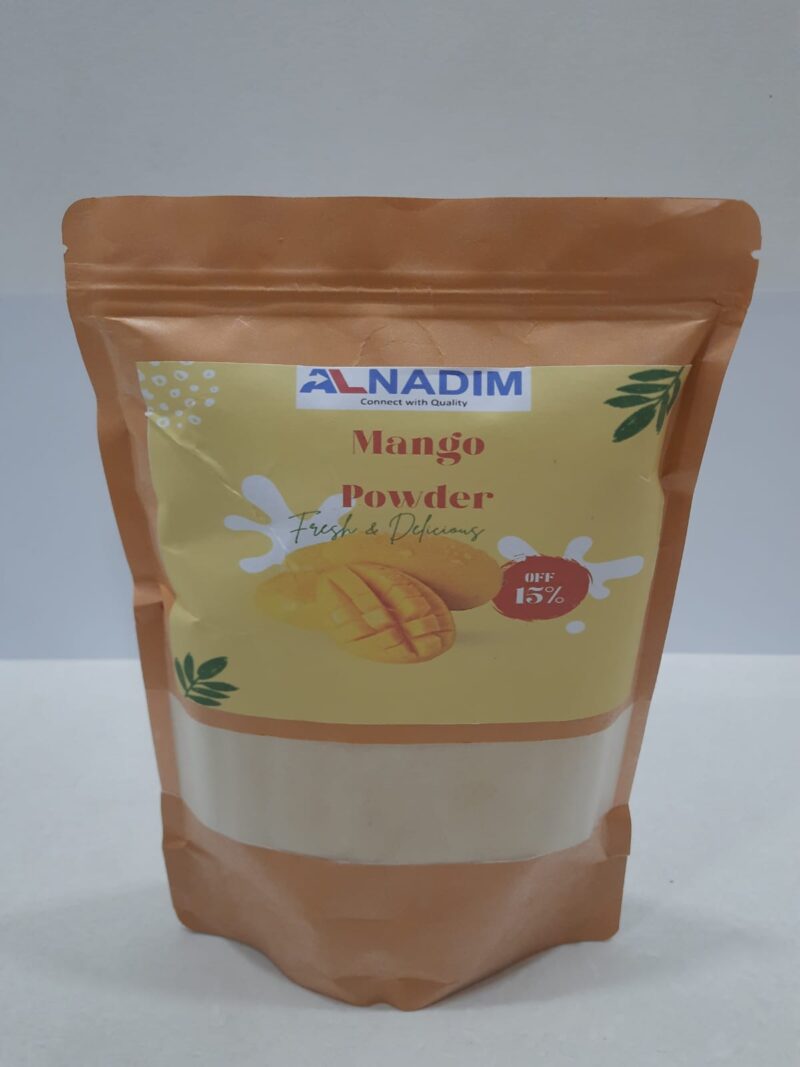
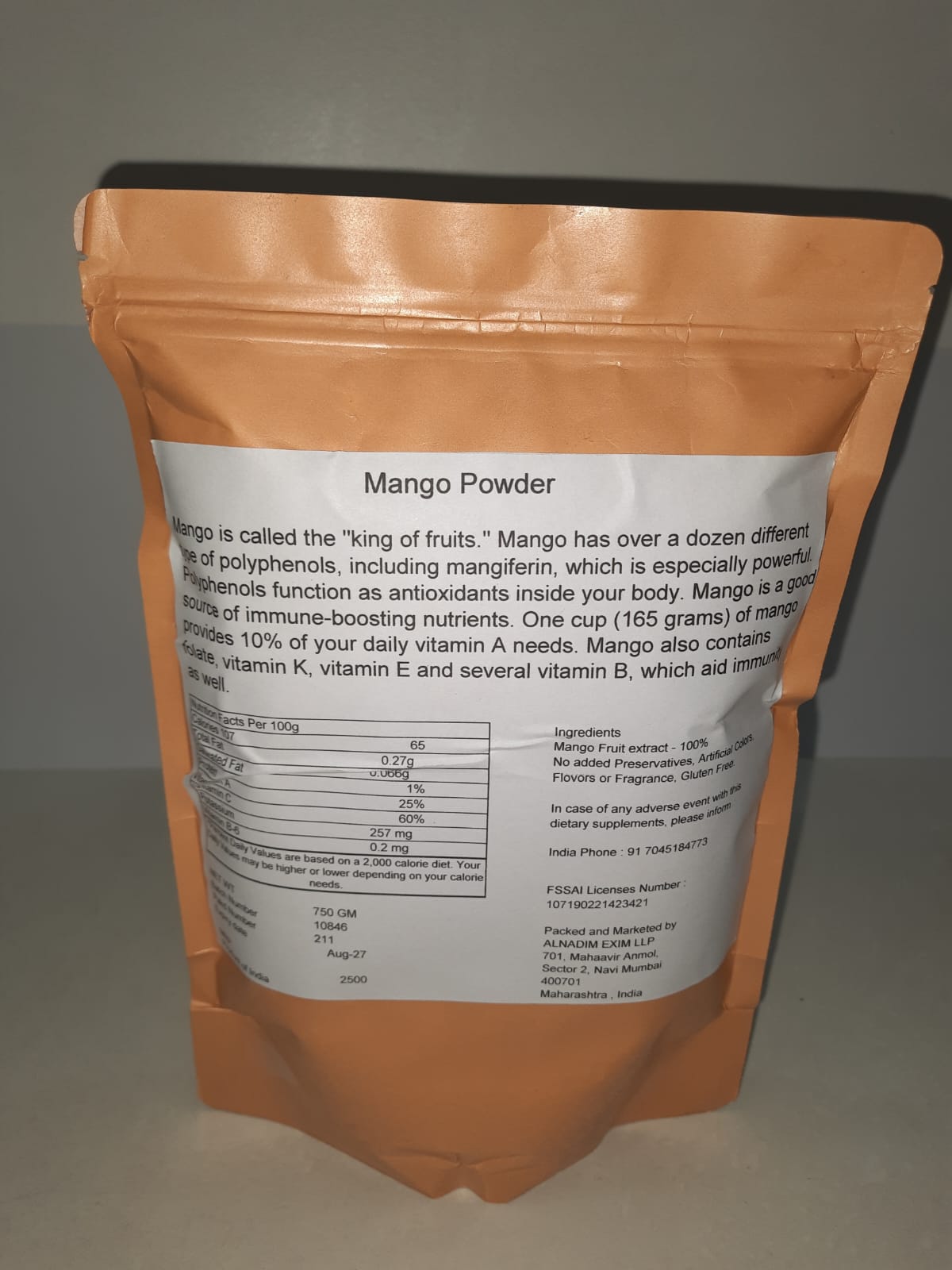




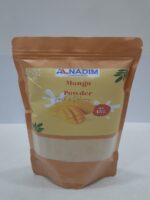

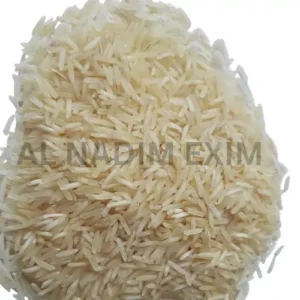
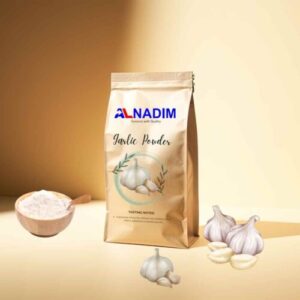


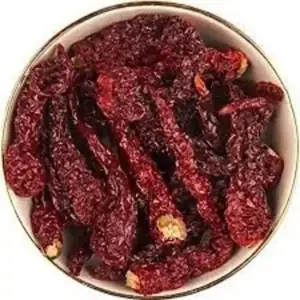

Reviews
There are no reviews yet.